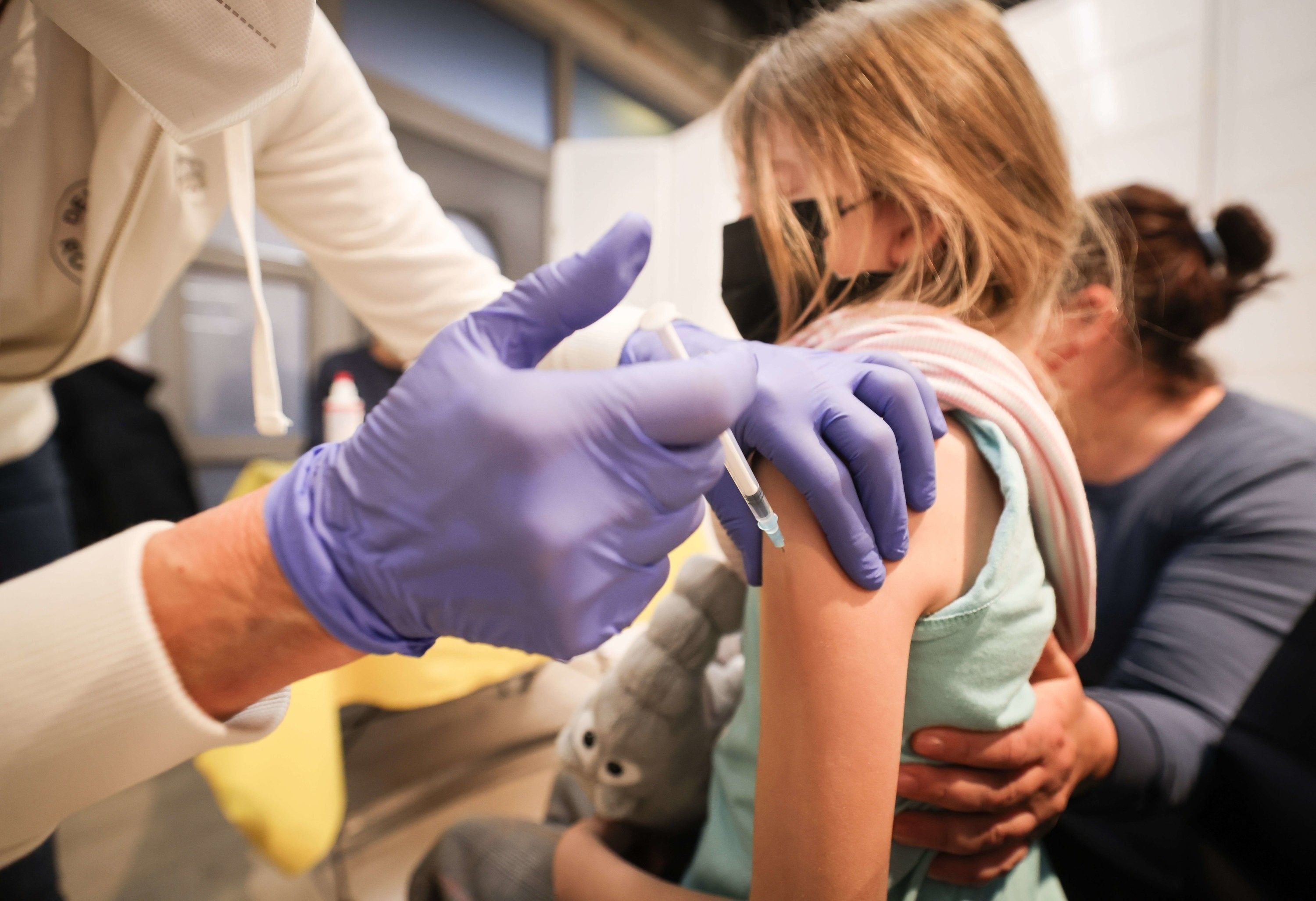The corona vaccination has caused inflammation of the heart muscle (myocarditis) in some children and adolescents. A study by American heart specialists now says that some of those affected may have long-term damage. The results of the study were published in the scientific journal eClinical Medicine (part of The Lancet) (the link to this can be found at the end of this text).
A total of 333 people between the ages of five and 30 were involved in the study. All of them had received a clinical diagnosis of acute myocarditis after one of the corona vaccinations. They were primarily vaccinated with the Biontech/Pfizer vaccine. In some of them, the so-called “late gadolinium enhancement” (LGE) was found in magnetic resonance imaging (MRI) of the heart muscle. This means that the outflow of the contrast medium used in the MRI is delayed.
“Evidence that some change has occurred in the tissue”
The result: There is a temporary accumulation of the agent in the heart muscles or in the pericardium. This in turn can be an indication of possible tissue damage. During follow-up examinations, 60 percent of the affected people continued to have LGE even after six months.
Die Pharmacy Umschau spoke to Prof. Dr. Sabine Klaassen. Klaassen is a pediatric cardiologist at the Berlin Charité. The report states: “The accumulation of the contrast agent in the heart muscles or in the pericardium is evidence that some change has occurred in the tissue.” The cases in which LGE occurs are very rare. However, it is currently unclear what consequences this change will have. It is therefore “important that young patients who have developed myocarditis as a result of an mRNA vaccination take part in regular clinical follow-up examinations”. This means that if complications arise, countermeasures can be taken in good time.
“Absolute protection in the case of myocarditis”
Inflammation of the heart muscle can be triggered by the corona vaccination or by viruses or bacteria. Possible signs include pronounced heart palpitations, shortness of breath, heart palpitations, palpitations, fatigue, tiredness, shortness of breath or even water retention in the legs (edema), the Pharmacy Review lists.
Charité expert Klaassen further told the magazine: “Complete protection is the be-all and end-all when it comes to myocarditis.” Sport and other major physical exertion are taboo for three to six months. Stress should only be resumed in small steps after medical examinations and consultation. Klaassen: “Especially if this protective phase is not adhered to, there is a high risk that consequential damage to the heart can occur.” Rapid cardiac death is also possible.
The article from the Pharmacy Review was according to the editors scientifically from Dr. Dennis Ballwieser checked. Ballwieser is a doctor and editor, responsible for all editorial departments at Wort & Bild Verlag and heads the scientific editorial team (documentation & fact checking).
Published in the scientific journal eClinical Medicine (part of The Lancet). Results of the study can be found here.


